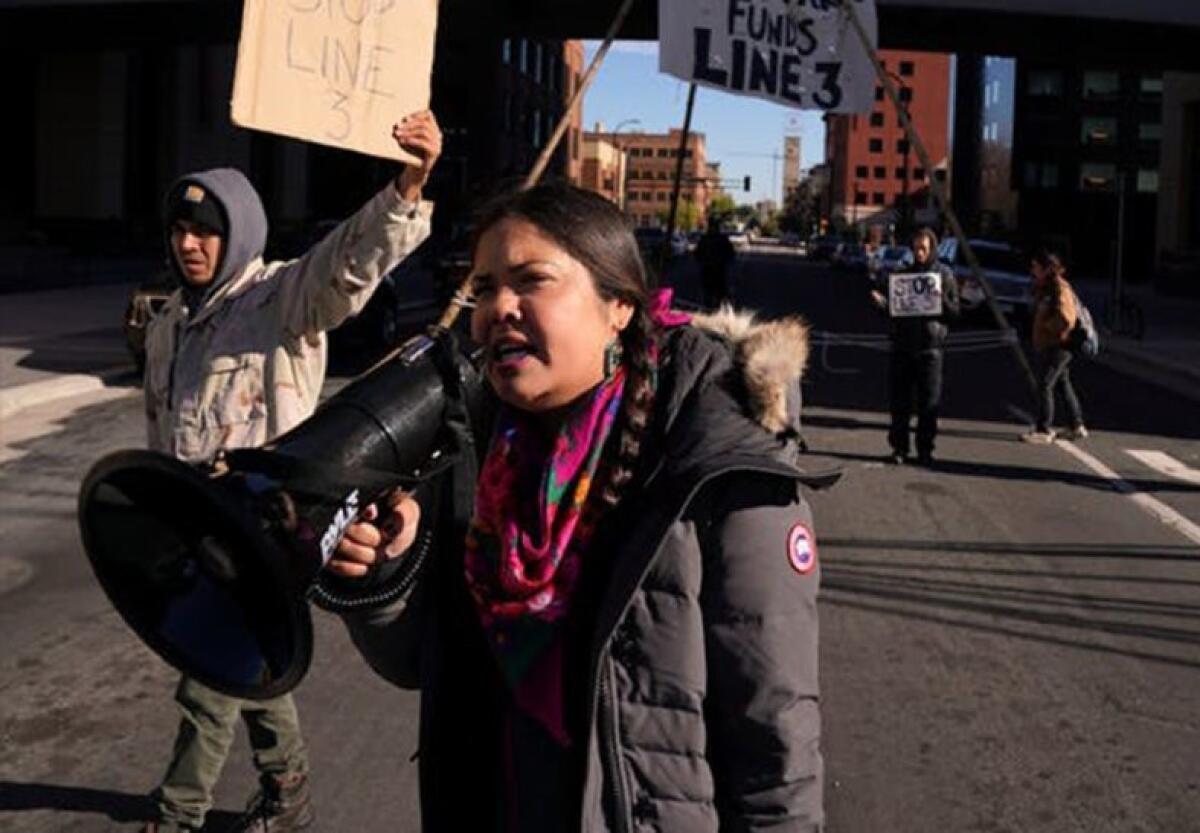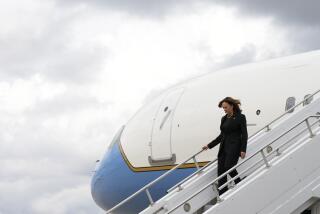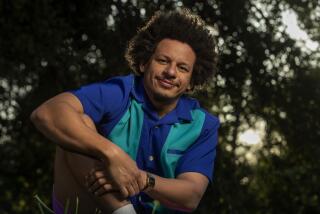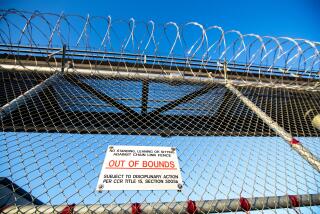TSA apologizes to Native American traveler after an agent grabbed her braids and said ‘giddyup’

- Share via
If you didn’t know hair pat-downs were a thing with TSA screenings, you should now. Native American activist Tara Houska underwent a hair search at the airport Monday during which the agent pulled her braids behind her shoulders and said “giddyup.” The TSA has since apologized to Houska, who shared what happened to her at Minneapolis-St. Paul International Airport on social media.
Cliff Van Leuven, Minnesota director of the TSA, said in a letter to employees that he personally apologized to Houska, who “is hoping we’ll take the chance to continue to educate our staff about the many Native American Tribes/Bands in our state and region to better understand their culture.” He ended by saying: “We all make mistakes. Treating the public we are sworn to serve and protect with dignity and respect is our calling — every passenger, every day. We’ll learn from this …”
Hair pat-downs are all part of the screening process, according to a TSA video made in 2018 to familiarize travelers what they can expect. The video shows fictional passengers, almost all women of color, undergoing a pat-down. TSA spokeswoman Jenny Burke says she “doesn’t think it was deliberate” that the video featured mostly women of color. “That video is really intended to show that if you have a lot of hair, in any particular design on your head, it’s possible that it could trigger [the sensors],” she said Thursday. “If you’re Caucasian and have a big bun, it would also more than likely trigger.”

Turns out the machines are partly to blame, specifically the full-body scanners that use advanced image technology. Those scanners set off alarms when they sense something “anomalous to a standardized human form,” including the human head, Burke said. Buns, ponytails, extensions, wigs, hairpins, bows and other accessories can signal a false threat.
ProPublica in an April 2019 story looked into the issue after black women complained about undergoing “intrusive, degrading searches of their hair at airport security checkpoints.” The story also concluded that “futuristic full-body scanners that have become standard at airports across the United States are prone to false alarms for hairstyles popular among women of color.”
To this, Burke said, the agency is looking for new types of technology to improve scanning processes. Have any contraband items been found in hair searches? Burke wouldn’t disclose, saying such data is considered sensitive security information.
I asked members of a closed Facebook group for people with curly hair whether they have had their hair inspected by the TSA.
“ALL THE TIME,” wrote Nita Vazquez Blanning. “I was told its cause my hair was wet and it shows up a certain way on the screen”
“Just recently for the first time,” wrote Jennifer Liles. “Had my hair in a pineapple [high ponytail] and they made me take it out so they can inspect it. Felt it was pretty normal, but still weird.”
“Nearly every time I fly!” wrote Allison Buchanan.
What to do if you’re the subject of a hair pat-down
The TSA says fliers underoing hair pat-downs may:
- Ask to talk to a manager about the process.
- Ask the agent conducting the pat-down to change their gloves.
- Ask for a screening in a private area, accompanied by a friend or family member.
Also, any hair products that are spread, smeared, pumped or poured must comply with the rule about no more than 3 ounces if you put them in your carry-on bag.
And what about women who wear head scarves or anyone wearing religious items that cover their heads? The TSA’s website says:
“Persons wearing head coverings, loose fitting or bulky garments may undergo additional security screening, which may include a pat-down. A pat-down will be conducted by a TSA officer of the same gender. If an alarm cannot be resolved through a pat-down, you may ask to remove the head covering in a private screening area.
“Religious knives, swords and other objects are not permitted through the security checkpoint and must be packed in checked baggage. Inform the TSA officer if you have religious, cultural or ceremonial items that require special handling.”
Staff writer Marilyn Ruiz contributed to this story.
More to Read
Sign up for The Wild
We’ll help you find the best places to hike, bike and run, as well as the perfect silent spots for meditation and yoga.
You may occasionally receive promotional content from the Los Angeles Times.







